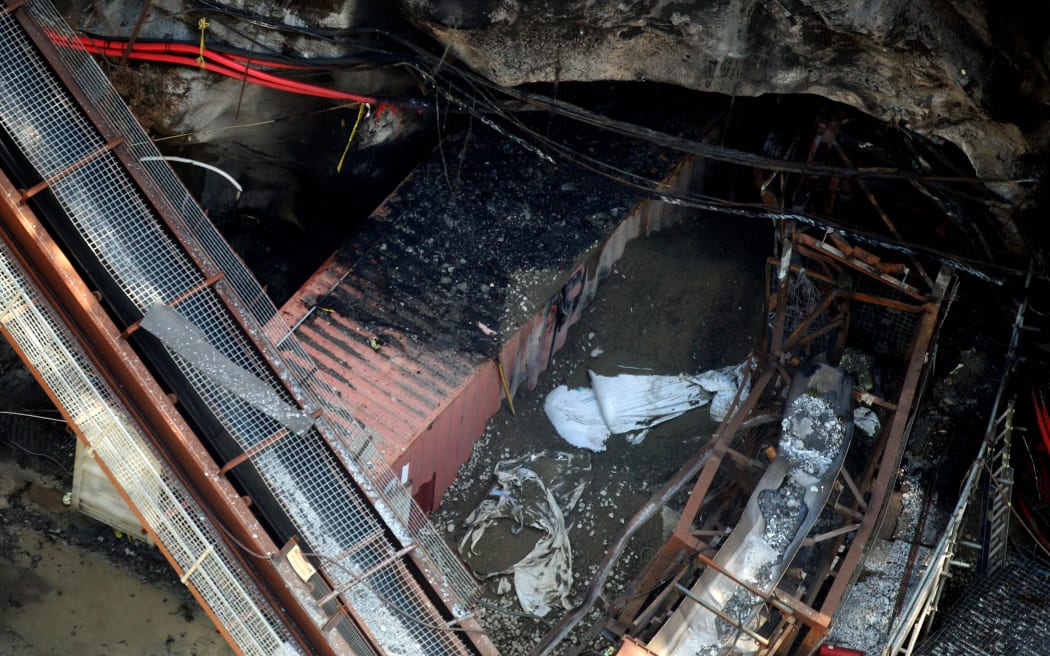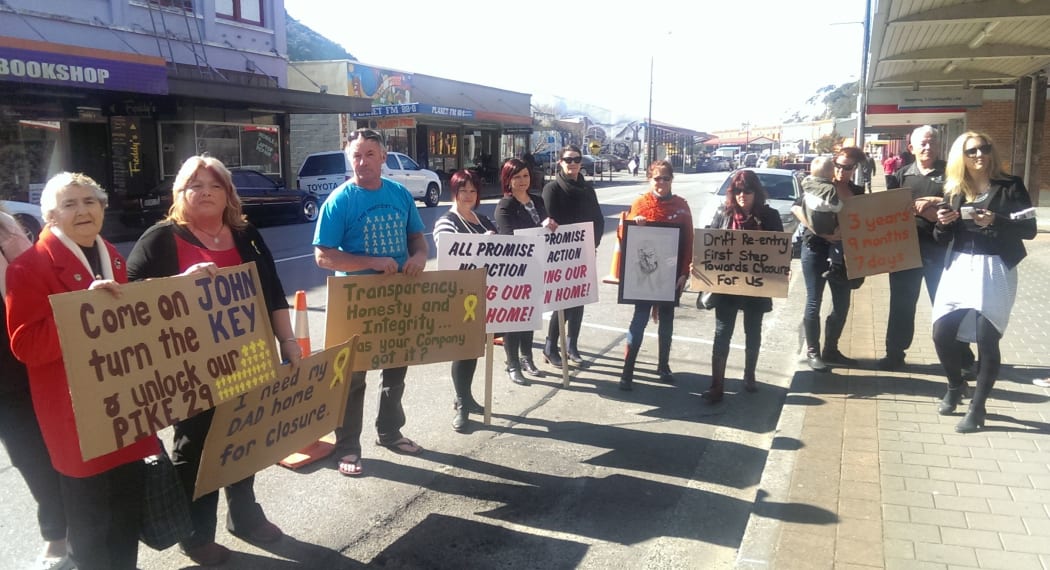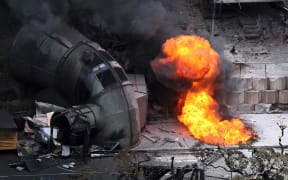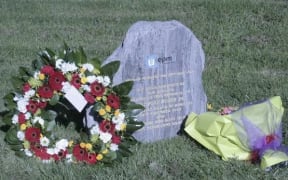Solid Energy, the State-owned enterprise that owns the Pike River mine, has for the first time detailed the risks to re-entering it.
The company says the West Coast mine, which exploded in November 2010 killing all bar two men inside, is still too dangerous to enter.

The partially blocked access to the Pike River mine in 2010. Photo: AFP
The families of the 29 men who died say they have been kept in the dark about the company's plans for entering the main tunnel, or drift, and are now fearful that it will not go ahead, despite approval from WorkSafe New Zealand that it is safe.
Solid Energy chief executive Dan Clifford told the families in today's regular fortnightly tele-conference that a number of elements combined make the risks to re-entering the mine potentially fatal.
Mr Clifford said the single entry design increased the risk to life, the rock tunnel had suffered enormous stress following four explosions, and a geological fault means the walls and roof were fractured.
"The nature of what we're dealing with up there isn't just a simple rock tunnel. We have poor roof conditions, we have gas, we know - or we suspect anyway - that the roof has been damaged."
More than 600 controls needed to be in place and working properly before a safe entry can go ahead, he said.
Mr Clifford said that while people would have opinions, Solid Energy's opinion on re-entering the main tunnel was the only one that mattered.
A lawyer for some families, Colin Smith, said none of these elements had ever been signalled to them until now. Mr Smith said they wanted to know what information Solid Energy was basing these claims on before they could accept them as reasonable.
"It would certainly be significantly helpful, from an understanding point, for the families to have the opportunity to review the further information, or the additional information, which we understand Solid Energy have."
Re-entry safe and feasible, documents show
WorkSafe documents released under the Official Information Act show Solid Energy was told that a re-entry plan was safe and feasible.
The company was aware of this more than a year ago, and families today met with it over details of the documents.
A spokesperson for most of the victims' families, Bernie Monk, said Solid Energy was not telling them what the hold-up was.
"If they can't do it, move over and let the people of our experts to do the job, because we're sick of getting stumbling blocks put in front of us and everyone knows this job can be donned just can't understand why they're sitting back and not doing it."
Mr Monk said the mine drift was probably more safe to enter than operational ones at other mines.
Engineering, Printing, and Manufacturing Union spokesperson Ged O'Connell said re-entry into the tunnel was not a priority for Solid Energy, but it should be. He said Pike River was initially sold to the state coal miner to ensure that recovery would proceed.
"So the people who run the company are absolutely and utterly and understandably preoccupied with other priorities, so they're just not giving it the focus that it needs."
Pike re-entry risks managed, trust says
The Mines Rescue Trust said everything possible had already been done to manage the risks around entering the main tunnel.
Mines Rescue Trust chairman Dave Stewart said it was working through its own risk assessment.
Mr Stewart told Morning Report the trust was happy with plans so far and documents showed there were no operational impediments.
"We've been working with Solid Energy to ensure that all the risks identified are mitigated as much as they practically can, that is the case, in other words all of the risks have been mitigated as far as they can."
Mr Stewart said the Mines Rescue Trust had not been working on the basis of a second escapeway being needed.

Relatives of Pike River victims protesting against a visit by Prime Minister John Key earlier this year. Photo: RNZ / Patrick Phelps






